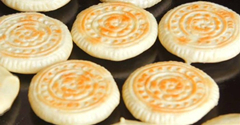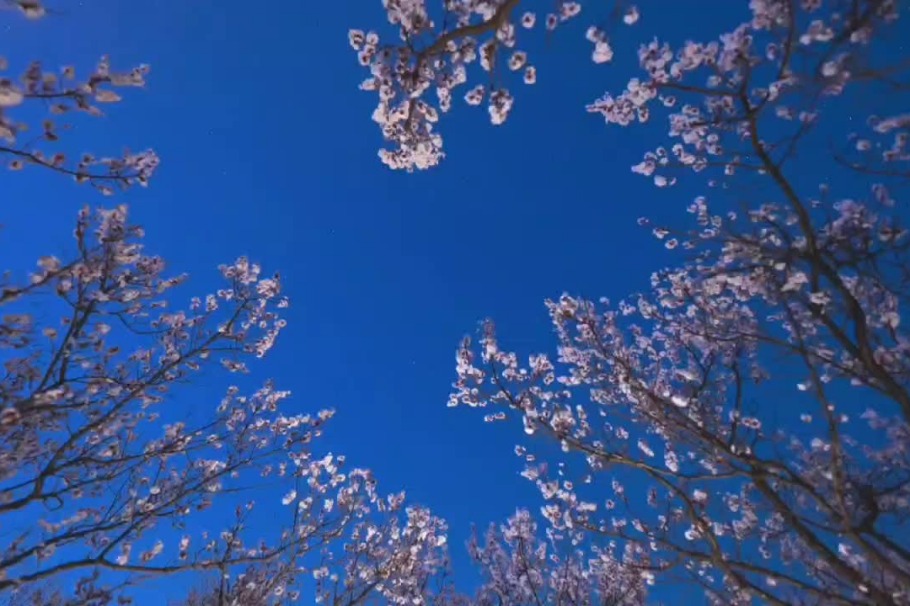News
Sculptor picks up where his dad left off
Updated:2023-02-14 10:28By Sun Ruisheng in Taiyuan and Zhou Huiying ( China Daily)
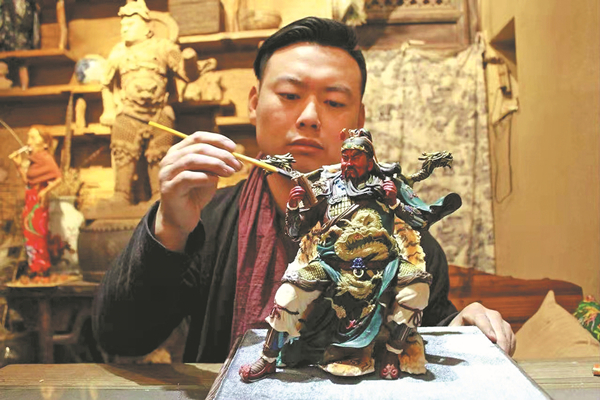
Zhang Rong works on a clay sculpture at his studio in Pingyao, Shanxi province. [Photo provided to China Daily]
Third-generation inheritor gets steady job before finding way back to old craft
Over the past decade, Zhang Rong has made clay figures free of charge for 2,000 people, including around 100 left-behind seniors, in Pingyao county in Jinzhong city, Shanxi province.
Born into a family of sculptors in 1983, Zhang demonstrated an interest in the traditional Chinese art as a child and was taught how to make the figurines by his grandfather.
"My father made Buddhist sculptures for different temples in the city," he said. "From the age of 6, I would sometimes follow him when he went to work."
Pingyao's temples are famous for their painted Buddhist sculptures and art.
Among them, Shuanglin Temple, some 6 kilometers to the southwest of the county seat, is known as "China's museum of painted sculptures" as it contains over 2,000 colorful examples, the largest collection in the province.
"As I grew up, I was able to help my father make small accessories for the sculptures," he said. "At the time, I dreamed of learning my family's skills."
His father, however, did not want him as his successor and hoped that Zhang would focus on school instead.
"My parents insisted that it was best for me to get into college and then find a stable job after," he said. "I chose to do as they advised."
In 2002, Zhang was admitted to Jinzhong University to study computing and became a programmer after graduating in 2005.
"But I still dreamed of becoming a sculptor and of creating vivid clay sculptures like my father," he said. "To overcome the boredom of work, I began to make clay figures in my spare time."
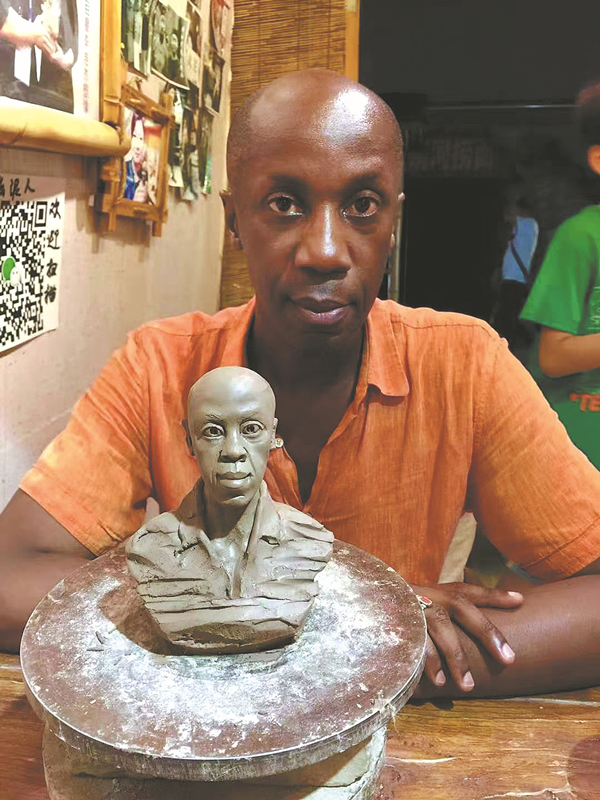
A foreign tourist poses with a clay sculpture portrait created by Zhang at the sculptor's studio. [Photo provided to China Daily]
Unlike the Buddhist sculptures his father made, Zhang chose to make figures for people around him.
"I believe that it is difficult to make figurines that can really touch other people," he said. "I wanted to take on the challenge."
To start with, he carefully observed colleagues in the office and then secretly made figurines of them.
"My father didn't teach me properly, but I learned a few basic sculpting skills as a child," he said. "I spent my spare time learning the skills I needed in various ways, by reading books about the human body and sculpture, as well as learning from local artists, which helped consolidate my professional foundations and enhance my aesthetic abilities. "It's more important to practice a lot and to develop your own unique style."
Through hard work and talent, Zhang quickly honed his skills and his pieces were well received by his colleagues.
He finally decided to quit his job and start his own business making clay sculptures in his hometown in 2012.
He set up his studio in the ancient town of Pingyao, where his exquisite craftsmanship caught the eye of tourists from home and abroad.
"The process of making a figurine is actually not complicated, but it is not easy to properly reflect the model's personality and charm in the work," he said.
"I was proud when customers were touched by the finished figurines."
Zhang also made clay figurines for a few special customers for free, among them left-behind seniors, soldiers or those who shared a heartwarming story.
"I still remember that when I finished one figurine for an elderly woman, she immediately asked for another one of her husband who had passed away two years previously," he said.
"I was deeply moved by her loss and agreed without hesitation."
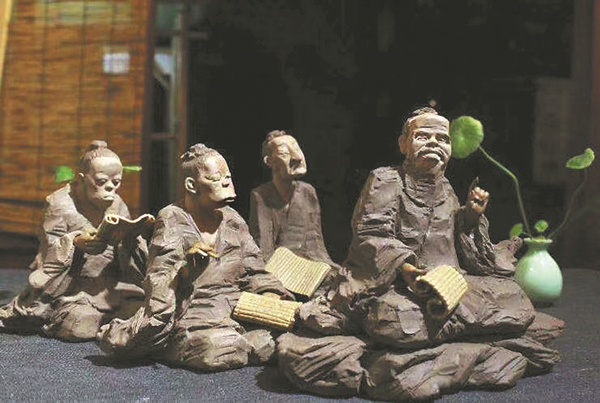
One of Zhang's pieces. [Photo provided to China Daily]
Thanks to Zhang's efforts, Pingyao clay figure sculpting was listed as a city-level intangible cultural heritage in 2015, and he was granted the title of city-level inheritor.
He began teaching that same year.
So far, about 10,000 students have learned from Zhang in a variety of ways, including through live classes, school courses and intangible cultural heritage study tours.
In 2017, he joined an intangible cultural heritage folk art team, teaching students at colleges and vocational schools in Jinzhong about traditional arts like clay sculptures.
"For my father's generation, making sculptures was just a way to make a living. They didn't realize the value of traditional Chinese culture," he said.
"As the country has placed more emphasis on intangible cultural heritage, more traditional skills are becoming well-known.
"As an inheritor of Pingyao clay figurines, I hope to tell more people about the art. It will be my lifelong mission," he added.

